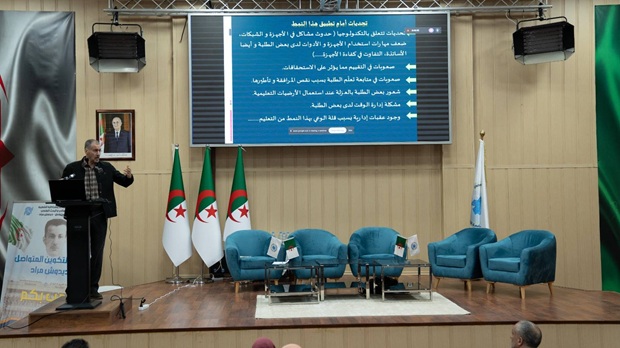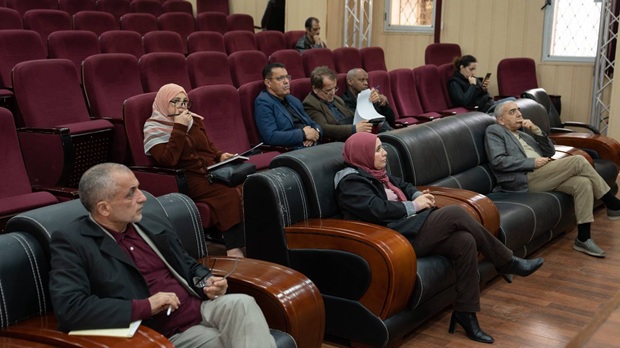
Training Workshop on the Role of Course Coordinators in Hybrid Education: Challenges and Solutions
Media and Communication Cell
University of Continuous Education – Didouche Mourad
On Tuesday, March 18, 2025, the University of Continuous Education (Didouche Mourad) organized a hybrid training workshop at the university headquarters under the theme: « The Role of Course Coordinators in Hybrid Education: Challenges and Solutions. » This initiative aligns with the university’s strategy to enhance the outcomes of distance education and strengthen faculty members’ ability to manage the teaching process using digital tools.
The workshop was led by Prof. Naaman Saidi, Head of the Quality Assurance Unit at the university, who provided in-depth explanations on the responsibilities of course coordinators and the importance of integrating modern digital tools into higher education.
The primary goal of the workshop was to deepen faculty members’ understanding of the pivotal role played by course coordinators in managing online learning platforms. As key facilitators of the educational process, course coordinators bear various pedagogical and organizational responsibilities that support both students and faculty while easing the workload of program managers and administrators.
The workshop began with an overview of the significance of course coordinators in hybrid education, addressing key challenges in this system. It then explored the main tasks of course coordinators within the Moodle Learning Management System, such as managing course modules, structuring study programs, overseeing student and faculty interactions, organizing digital learning resources, and coordinating teaching teams to ensure smooth communication among all stakeholders.
A key highlight of the workshop was the hands-on training session, where participants practiced using Moodle to manage course content and develop practical solutions to the challenges faced by faculty and students in a hybrid learning environment.
The workshop attracted a diverse group of permanent and adjunct faculty members, particularly those involved in e-course design, as well as program coordinators and field supervisors responsible for overseeing academic programs. The event witnessed high engagement from participants, who emphasized its importance and requested additional training sessions to expand the scope of benefits.
This initiative reflects the university’s commitment to advancing digital education and improving faculty performance in hybrid teaching, reinforcing its dedication to fostering a modern, technology-driven learning environment that meets the demands of the digital era.

